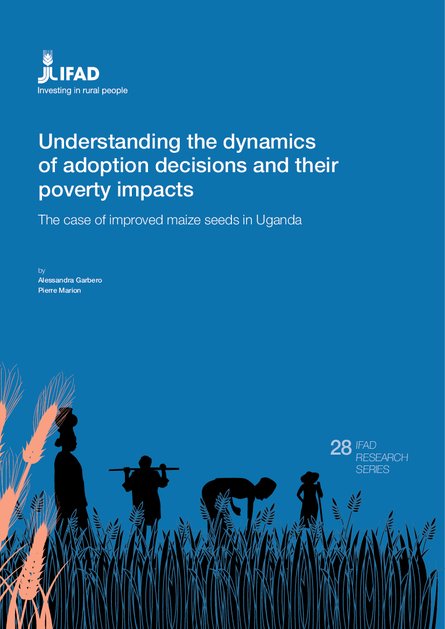
This study estimates the impact of agricultural research, specifically improved maize seeds varieties, on agricultural productivity and welfare in Uganda using a three-wave panel survey.
First, it looks at the determinants of technology adoption are examined in a dynamic setting that allows for state dependence, in the adoption decision process. The analysis shows that previous adoption is very important in explaining contemporary adoption.
Then, it examines the impact of improved maize seeds adoption on welfare, notably consumption-expenditure, poverty, and agricultural outcomes such as yields.
Findings show that the magnitude of impacts is fairly similar across the different models. Estimates for the daily per adult equivalent expenditure increased by a range of 5-16% as a result of agricultural technology (total agricultural production increased by a range of 5-13%) and the proportion poor set with the daily 2 US $PPP per capita poverty threshold decreased by a range of 4-12%.
In addition, poverty reduction occurred through a rise in maize yields, where adoption of improved maize seeds increases the value of production and supports the achievement of poverty reduction outcomes.
One major policy recommendation arising from this study is that extension services need to be better suited to address the volatility of the agricultural context where smallholders operate. Such extension support needs to be timely and tailored to the local context and the needs of rural smallholders in order to properly address their vulnerability and liquidity constraints, which prevent them from fully making a long-term profit from the substantial benefits of this technology.
